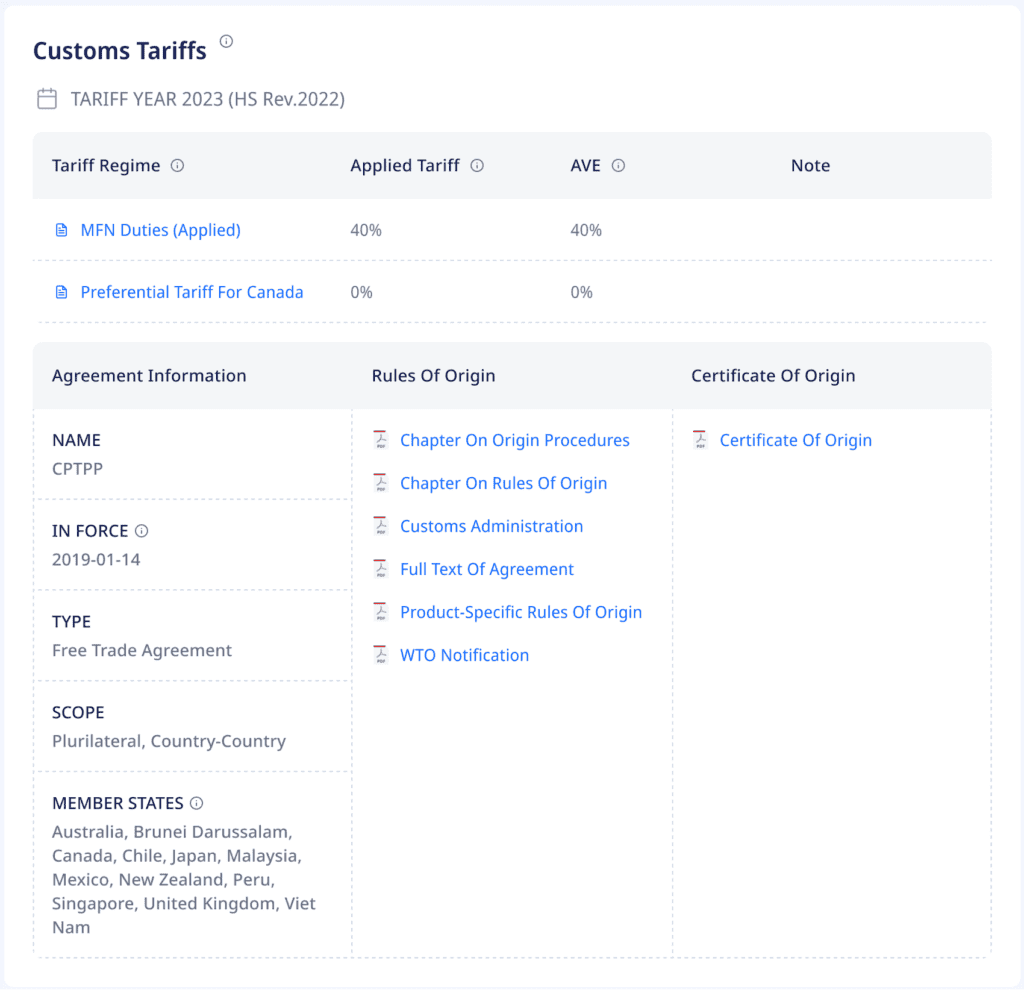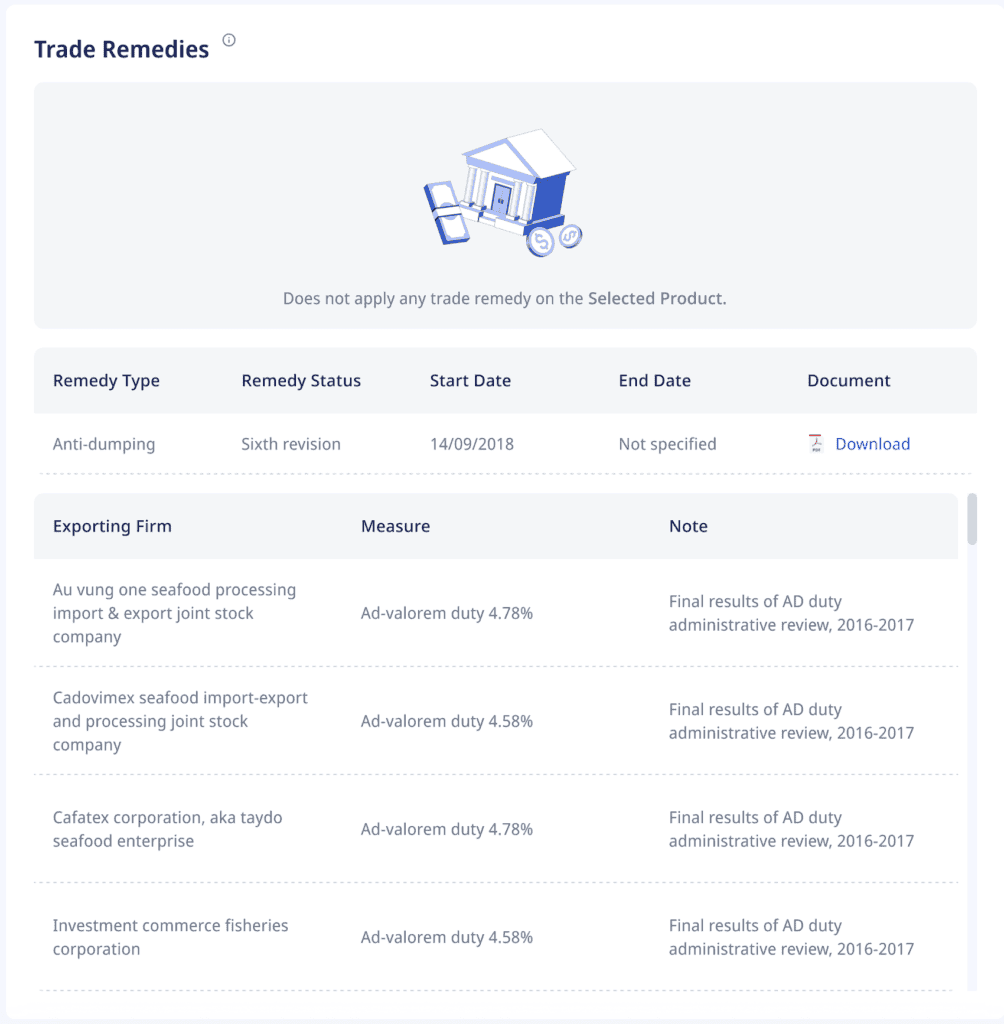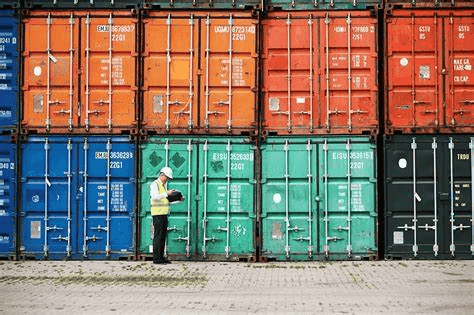Easy to Understand, Officially Sourced, Tax and Tariff Data
ADAMftd’s detailed and regularly updated information on taxes, tariffs, and non-tariff remedies offers a crucial advantage for businesses involved in international trade. By providing transparent and accurate data, linked to official government sources, ADAMftd empowers importers and exporters to make informed decisions, optimize their pricing strategies, and ensure compliance with international trade regulations. This comprehensive solution helps businesses navigate the complexities of global trade with confidence and efficiency.
Comprehensive Customs Tariffs Information
ADAMftd provides detailed information on customs tariffs for any product being exported from one country to another. The platform shows applied tariffs, including Most Favored Nation (MFN) duties and preferential tariffs, which can significantly affect the cost of trade. This transparency ensures that importers and exporters can accurately calculate their costs and price their products competitively. By offering easy access to this crucial information, ADAMftd helps businesses optimize their pricing strategies and maintain compliance with international trade regulations. The platform also links to official government sources, ensuring the reliability and accuracy of the data.

Detailed Trade Remedies Insights
Understanding trade remedies, such as anti-dumping duties, is essential for exporters and importers to navigate international trade successfully. ADAMftd offers detailed insights into trade remedies applied to specific products, including remedy types, statuses, and measures such as ad-valorem duties. By providing comprehensive information on trade remedies, ADAMftd enables businesses to anticipate additional costs and adjust their strategies accordingly. This feature helps mitigate the risks associated with unexpected trade barriers, ensuring smoother and more predictable trade operations. The platform’s regular updates and links to official documents further enhance its credibility and usefulness for businesses.

Product Tax & Tariff Use Cases

Analyzing Product Tax Rates
Accessing information on product tax rates helps businesses accurately calculate the total cost of their goods. Understanding these rates ensures compliance with tax regulations, aids in pricing strategies, and helps avoid unexpected costs. This knowledge is crucial for financial planning and maintaining profitability.

Evaluating Tariff Impact
By analyzing tariffs imposed on products, businesses can determine the cost implications of importing or exporting goods. Understanding tariff rates helps in cost estimation, pricing decisions, and identifying the most cost-effective sourcing and market entry strategies. This aids in maintaining competitive pricing and improving market access.

Identifying Regulatory Barriers
Information on non-tariff barriers, such as quotas, import licenses, and standards, helps businesses navigate regulatory challenges. Understanding these barriers enables companies to comply with import and export requirements, avoid penalties, and ensure smooth market entry, thus minimizing trade disruptions.

Classifying Products Accurately
Using the Harmonized System (HS) codes for product classification ensures that businesses comply with international trade regulations. Accurate classification helps in determining applicable duties and taxes, facilitating customs clearance, and avoiding misclassification penalties. This ensures efficient and compliant trade operations.

Avoiding Unfair Trade Practices
Understanding anti-dumping duties helps businesses protect themselves from unfair trade practices. By being aware of these duties, companies can avoid sourcing products that may be subject to high anti-dumping tariffs, ensuring fair competition and preventing potential financial losses due to unexpected costs.

